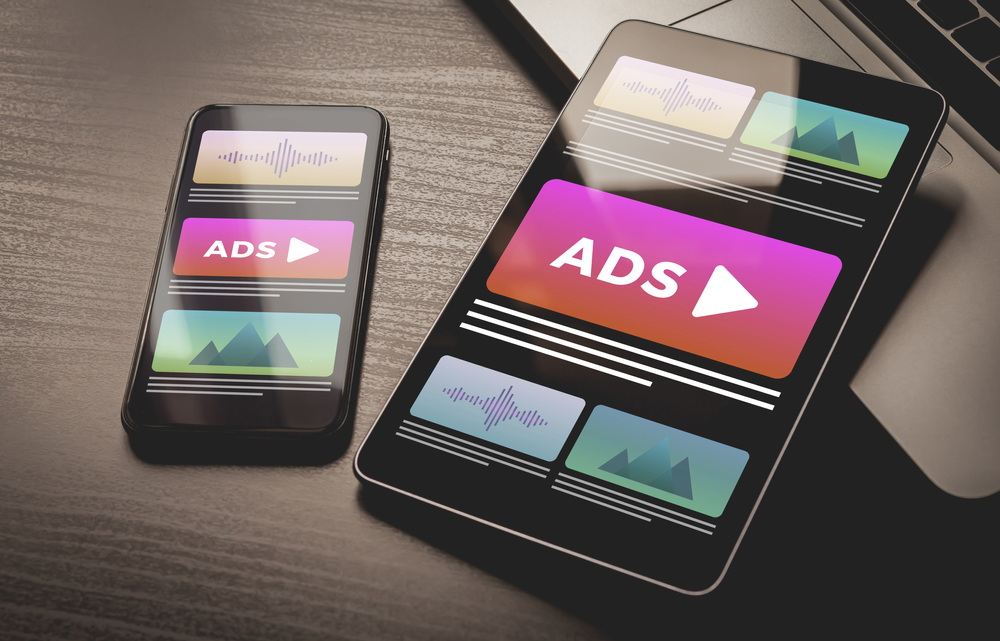0/5
(0 Reviews)


How do you get the word out about your business? Many owners immediately answer, “Advertising.” Some say marketing, but often they are referring to advertising.
Business owners have spent decades reaching new customers by advertising on the radio, television, using billboards, and even putting ads online. The mindset is that if you want someone to know something, you need to interrupt them and tell them!
However, advertising is now losing ground to another, more effective method of marketing. Inbound marketing allows you to attract customers instead of chasing them. Let’s take a look at what advertising means and how it compares to inbound marketing.
The basic definition of advertising is “a paid means of communication with consumers meant to influence them into buying a product or service.”
Paid means that you cannot share your message unless you pay the platform for the privilege. For example, a paid ad on Facebook will reach a specific targeted audience, but if your budget runs out, people no longer see your marketing message.
Influence means that the goal of marketing is to be persuasive. You may not pursue a sale immediately, but you want to influence people to trust your business, accept you as an authority, and have a positive feeling about your brand. Or, your advertising may be focused on convincing someone to make an immediate purchase.
Advertising is almost always interruptive. The basic premise is that you find an activity that your ideal customer base enjoys, and then pay the provider of that activity to interrupt with advertising. If your target customers enjoy watching basketball, you might pay for signs next to the basketball court with your company message. Or, you might buy advertising that is played during timeouts and half-time.
Unfortunately, consumers are becoming increasingly savvy about advertising and often find ways to skip it. That means advertising is less and less effective, even while it becomes more and more expensive. It’s not a strategy that will give you a good return on investment (ROI) in the long run.
Inbound marketing is the modern answer to the way consumers behave in the 21st century. This marketing approach is about creating valuable content and tailored experiences that draw consumers to you, rather than you having to interrupt them to share your message.
Inbound marketing allows you to form relationships by solving problems consumers have right now, rather than hoping that your advertising will resonate with them. Google is one of the best tools available to marketers for this purpose. Why? Because everyone uses Google to search for answers to their questions and needs!
Whether someone is searching “How to unclog a sink” or “Best colour for kitchen cabinets,” they are putting those phrases into Google. If your business is ready with an engaging article or video that answers that question, you can quickly establish yourself as a helpful, authoritative resource.
That means you’ll be top-of-mind when the customer decides they need help from a professional instead of working on something themselves.
Now that we’ve answered, “What does advertising mean?”, you might wonder if we recommend advertising for small businesses.
It’s clear that inbound marketing is more effective and less expensive than advertising, so we don’t recommend using ads long-term. However, because inbound marketing takes time to get established, using advertising can be a useful way to build your brand image and online presence in the meantime.
The ultimate goal would be to switch away from advertising to inbound marketing, and perhaps only use ads during special promotions or other time-sensitive events. Otherwise, building long-term relationships and attracting new customers through inbound marketing is a much better use of your limited resources.
While advertising only shows your message to consumers once, inbound marketing creates a longer-term relationship where you attract, engage, and delight your customers. They turn from strangers who have a need into leads, and from leads into customers, and from customers into promoters of your business.
When you create engaging blog posts, optimize your website, and focus on selling solutions rather than products, you’ll gain new customers consistently and spend far less money to do so.
Now that we’ve talked about advertising and marketing, what is your company’s focus? Do you spend money on advertising, hoping that interrupting your ideal customers will get their attention and cause them to contact you?
Or, are you taking advantage of inbound marketing to increase your number of high-quality leads and improve your profitability?
If you’re not using inbound marketing, we can help. At Local SEO Search, we’ve helped thousands of small businesses grow and succeed in getting ready-to-buy customers to reach out. We’d love to show you what SEO and inbound marketing can do for your business. Contact us for a free consultation today!
